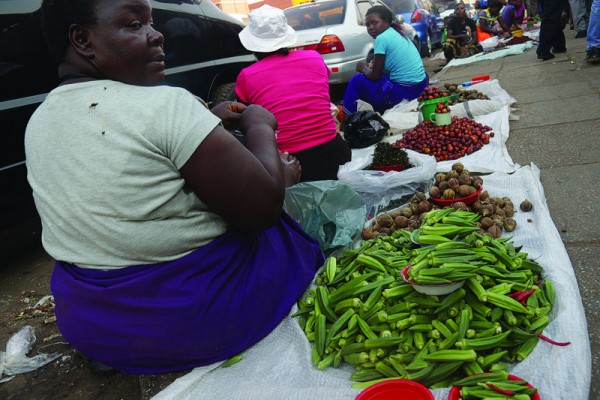The Gendered Impact of Bulawayo’s CBD Vendor Removals.
By Jacqueline Ndlovu

The proposed removal of informal vendors from Bulawayo’s central business district (CBD) has sparked conversations about economic opportunity, formalization, and the very fabric of the city. Amidst the debate, one crucial layer often goes unseen: the gendered impact on women who trade in these streets, particularly the 5th avenue market.
Women make up a significant portion of Bulawayo’s informal economy, particularly in the vending sector. For many, vending represents a lifeline, a source of income for themselves and their families, often in the absence of formal employment opportunities that have dwindled due to the volatile economy in Zimbabwe. Removing them from the CBD, their established space of commerce, disrupts not just their livelihoods but also their social and trading networks, support systems, and distorts their financial independence.
The immediate consequence is the loss of income. Vending, though challenging, offers women flexible working conditions and a degree of control over their earnings. This financial independence empowers them to make decisions for themselves and their families, contributing to household needs and supporting children’s education. With vending stalls dismantled, many women are left scrambling, searching for alternative sources of income in an already saturated market.
The impact extends beyond control of their finances. Vending communities often function as support networks, offering mutual trust, friendships, and shared experiences. For women facing societal pressures or domestic challenges, these communities can be a source of solace and strength. Being uprooted from their day to day vending routines isolates them from their trading networks, compounding the stress and uncertainty of their situation. However, this further increases GBV incidents and conflicts within families as a result of decreased sources of income and disrupted food provision to cater for family members.
Women shoulder a larger burden of unpaid care work inclusive of domestic chores compared to men in the sense that it is perceived as a societal norm for women to take the responsibility to cook, clean the house, do the laundry and fetch children to and from school. Removing vendors from the CBD means increased daily commuting and this adds more expenses to their already suffocating finances. Moreover, there are new emerging dynamics within the city like the scotch cart order will further prejudice these women.
Addressing the informal economy needs more than just clearing streets but a socially inclusive and just solution that will not delay Bulawayo’s evolution into a smart city by 2030. Blanket removals overlook the unique challenges faced by women vendors and can exacerbate existing inequalities. Instead, efforts should focus on creating [a dialogue between the council and the vendors] inclusive solutions that recognize the vital role women play in keeping homes together hence contributing to Bulawayo’s economy and society. A more progressive approach should be employed as these removals might be met with resistance as women organize and fight for their livelihood.
